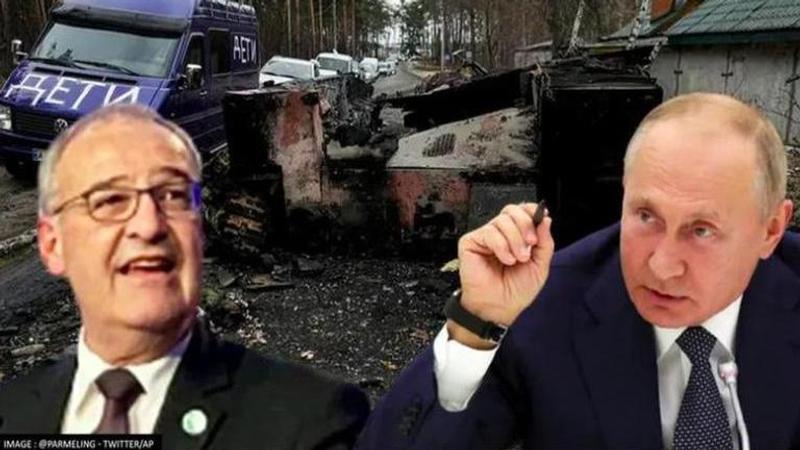Published 08:00 IST, April 14th 2022
Switzerland adopts latest round of EU sanctions on Russia; bans import of coal & vodka
Other wide ranges of goods sanctioned include photographic film, printing ink, paper, wool, thread, flowers, microscopes, and categories of turbines & engines.

Switzerland on Wednesday, April 13 adopted trade and financial sanctions against Russia in a coordinated move with the European Union that introduced the fifth package in response to Moscow’s brutal invasion of Ukraine. The Swiss government has resorted to imposing a total ban on the Russian import of vodka, seafood, timber, cement, coal, and other goods that “serve as important sources of income for Russia.”
Switzerland also sanctioned the export of kerosene to Moscow as well as various other products that can contribute to the “strengthening of industrial potential”, including the chemicals industry of the Kremlin. Economics Minister Guy Parmelin said at a conference that the Swiss ministry extended travel and financial restrictions on nearly 217 Russian individuals, including two daughters of the Russian president, Vladimir Putin, and 18 of his allies in the close trusted circle. The sanctions were effective immediately on Wednesday.
“On April 13, the Federal Council decided to adopt these new EU measures in relation to Russia and Belarus, with the exception of transport bans, the adoption of which is not necessary for Switzerland due to its geographical position,” read a statement from the government of Switzerland.
Switzerland's main aim is to 'prevent international sanctions from being bypassed by Moscow'
Switzerland has included as many as 200 legal entities and Russian individuals in its sanctions list. Other wide ranges of goods that have been sanctioned include photographic film, printing ink, paper, wool, thread, flowers, microscopes, and certain categories of turbines, and engines. A ban on the petrochemical equipment to Russia including for LNG projects was also put in place. “Our main aim is to prevent the international sanctions from being bypassed,” Parmelin told a news conference on April 13.
While Switzerland has been a state that adopted neutrality and has not been a member of the EU, it applied to join the 27-nation bloc after the invasion of Ukraine. The Swiss government is also drafting a bill for financial support for refugees fleeing war atrocities in Ukraine. It plans to allocate CHF3,000 ($3,214) per refugee with legal status to the housing committee that will integrate more than 30,000 refugees into the country.
Switzerland activated the sanctions against Moscow's industrial exports last month which also included cutting Russian banks from the SWIFT international financial messaging system. The Swiss government also confirmed that it will freeze the assets of entities and major firms linked with Russian President Vladimir Putin. “The implementation of these sanctions is compatible with Switzerland’s neutrality. Due consideration is being given to humanitarian activities,” a statement from the Swiss government read.
Justice Minister Karin Keller-Sutter iterated that Russian troops have been committing atrocities against the civilians and that some 320 Ukrainians have already sought protection in Switzerland. The export of the industrial materials could boost Russia’s military or technological capabilities, he asserted, adding that the country is taking coordinated steps with Brussels to slap a package of sanctions.
“The export to Russia of certain goods and services in the oil sector is no longer permitted. Furthermore, the export of certain goods and technology that can be used in aviation and the space industry is prohibited,” the Swiss government then announced.
Updated 08:00 IST, April 14th 2022




